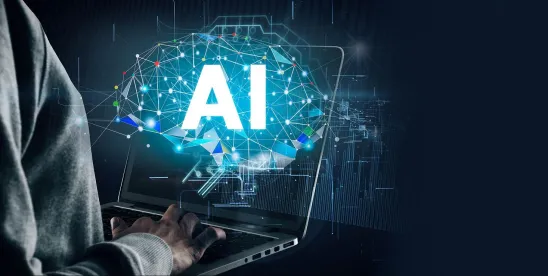Illinois Gov. J.B. Pritzker signed legislation last week that will require Illinois employers to inform workers and job seekers about their use of artificial intelligence (AI) technology in making employment decisions. The new law, known as H.B. 3773, also prohibits the use of AI that leads to discriminatory practices against employees. The bill offers amendments to the Illinois Human Rights Act by listing the use of AI, including generative AI, as a potential violation of civil rights.
H.B. 3773, which takes effect on January 1, 2026, provides that Illinois employers cannot utilize AI in recruitment, hiring, promotions, disciplinary actions, terminations, or any other aspects of employment. Using AI would subject employees and applicants to discrimination based on protected classes. The bill further bars the discriminatory use of ZIP codes as a tool to discriminate against protected groups of workers.
The Illinois Department of Human Rights will oversee the establishment of guidelines and rules necessary for the enforcement of this law, including protocols on how and when employers need to notify their staff about the use of AI.
What If You Are Not an Illinois Employer?
AI regulation is coming. Various states, such as Colorado, have also taken measures to address the potential biases in AI systems. The Colorado Artificial Intelligence Act (CAIA), enacted in May 2024, focuses on the development of “high risk artificial intelligence systems” and requires deployers of high-risk artificial intelligence systems to take reasonable measures to avoid algorithmic discrimination.
At the federal level, lawmakers are deliberating on strategies to regulate AI technology to uphold ethical and equitable practices in the workplace. As discussed in our previous blog, the U.S. Equal Employment Opportunity Commission issued guidance to assist employers in determining whether their use of AI could cause potential liability.
What to Do to Prepare
Considering this, Illinois employers should take these next steps:
- Assess AI systems – You should evaluate the AI systems you currently use or are planning to implement to ensure they do not have a discriminatory impact. This assessment should involve analyzing the algorithms, data inputs, and outcomes to identify any potential biases.
- Notify workers – You must inform your workers and job applicants about the use of AI in employment decisions. This notification should be clear and transparent to not only follow the law, but to promote trust and transparency in the workplace.
- Update policies and procedures – Update your internal policies and procedures to reflect the new requirements laid out in H.B. 3773. This may involve creating guidelines for the appropriate use of AI, conducting impact assessments, and implementing safeguards to prevent discrimination.
- Train employees – Train your employees involved in recruitment, hiring, promotion, and disciplinary processes on the proper use of AI technology. This training should include information on how to identify and mitigate biases in AI systems.
- Monitor compliance – Establish mechanisms to monitor compliance with the new law and ensure that AI systems are being used in a fair and non-discriminatory manner. This may involve regular audits, reviews, and assessments of AI usage in employment decisions.
Although this law will not cover non-Illinois employers, these steps are still helpful. By being proactive, employers can ensure that they are in compliance with the new Illinois law, as well as other state laws, and perhaps get ahead of coming laws to avoid potential problems.





 />i
/>i
